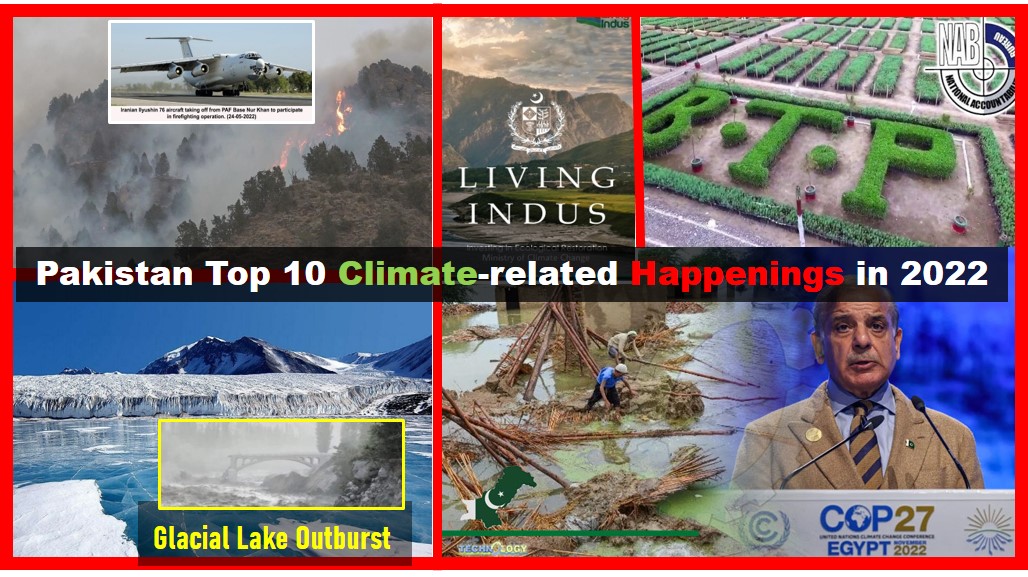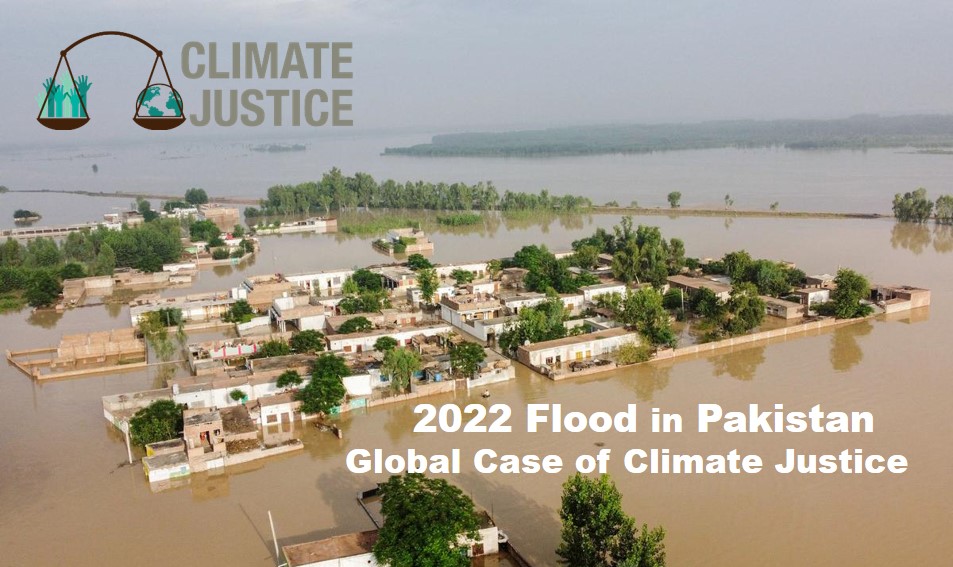Climate-induced disasters in 2022 specially deadly heatwave and devastating floods have significantly set back Pakistan. These environmental calamities caused more than 1,700 deaths and displaced more than 8 million people. The damage to infrastructure, assets, crops, and livestock has also been massive, with more than $30 billion in damages and economic losses. The World Bank Group’s Country Climate and Development Report (CCDR) for Pakistan notes that the combined risks of extreme climate-related events, environmental degradation, and air pollution are projected to reduce Pakistan’s GDP by at least 18 to 20% by 2050.
Environment & Climate Change Events
Here are the Top 10 Climate Change- induced events and developments in Pakistan.
- Pakistan Flood 2022 ranks in the 10th Costliest Climate Disaster
In this monsoon, unprecedented torrential rains together with flash floods have brought unbearable catastrophe in Pakistan. A state of emergency has arisen in several parts of the country after the monsoon rains and the resulting flash floods. Hundreds of villages and small towns in many areas of southern Punjab, Balochistan and Sindh were completely submerged, while the low-lying areas of major cities were also filled with rainwater. That has led UN Secretary General Antonio Guterres in September to visit Pakistan and admit that “Pakistan is Wrong Target of Nature”.
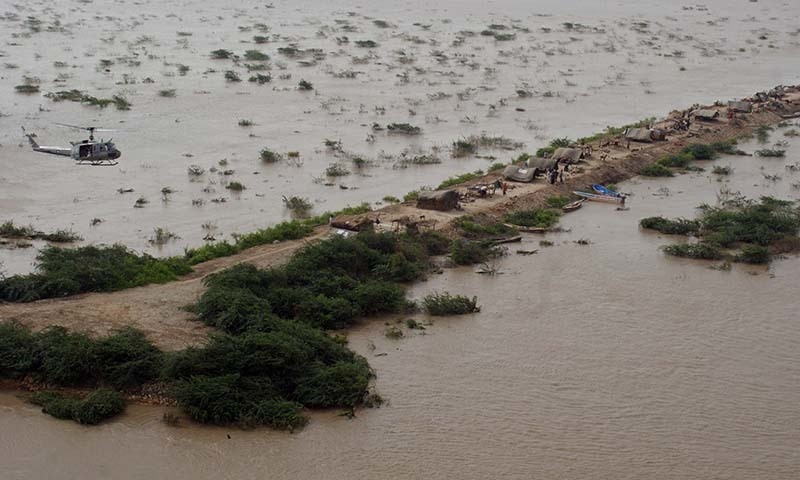
According to risk modelling firm RMS the calamitous Pakistan floods of 2022 have been listed in the 10th most expensive climate disaster to have buffeted a nation over the last decade, The floods inflicted an estimated loss of $3 billion on the country, caused over 1,700 deaths and displaced eight million people. The survey was carried out in the backdrop of deliberations at the COP27 climate conference in Egypt last week to hammer out a “loss and damage” mechanism that would determine, in monetary terms, the extent of destruction suffered by a country due to climate change.
2. Record Heatwave, Again
From March-May 2022, Pakistan recorded some of the highest temperatures across the country in the last 60 years. The country has been experiencing severely hot conditions for the last two months but April 2022 turned out to be the hottest month in the last 61 years. The maximum temperature was recorded as 49°C in Jacobabad on April 30, 2022. The March witnessed the hottest night in Karachi since 1961 when temperature remained 29.4 degrees Celsius. The heat waves from March to mid-June were followed by the onset of the monsoon in parts of the country with flash flood warnings and torrential rains causing loss of life and damage to property.

Pakistan is one of the most affected countries in the world by climate change, putting marginalized groups at high risk, exacerbating public health concerns, increasing demands for energy, reducing access to food, all affecting the right to an adequate standard of living. “This is a freak weather phenomenon that has completely shaved off the spring season in Pakistan,” former climate change minister Malik Amin Aslam told international media. He said temperatures were “6-7° higher than normal at this time. What we see happening most definitely is due to climate change,” he added. One of the most alarming effects of the “torrid” heatwave is the accelerated melting of Pakistan’s glaciers in the north.
3. Glacial Lake Outburst Flood in Gilgit Baltistan
Despite, the Ministry of Climate Change’ official warning of glacial lake outburst flash floods (GLOF), as many as 30 incidents of flood outburst reported in the mountainous region of Gilgit-Baltistan and Chitral in 2022 due to ‘unprecedented hot weather’. These glacial outbursts washed away infrastructure, making Gilgit-Baltistan a new flooding hotspot in Pakistan in 2022. Specially on May 7, over 10,000 cusecs of water was discharged because of a glacial lake outburst flood at the Shisper Glacier – leading to flashfloods and the Hassanabad Bridge destroyed in the northern Hunza Valley leaving tourists and locals stranded.
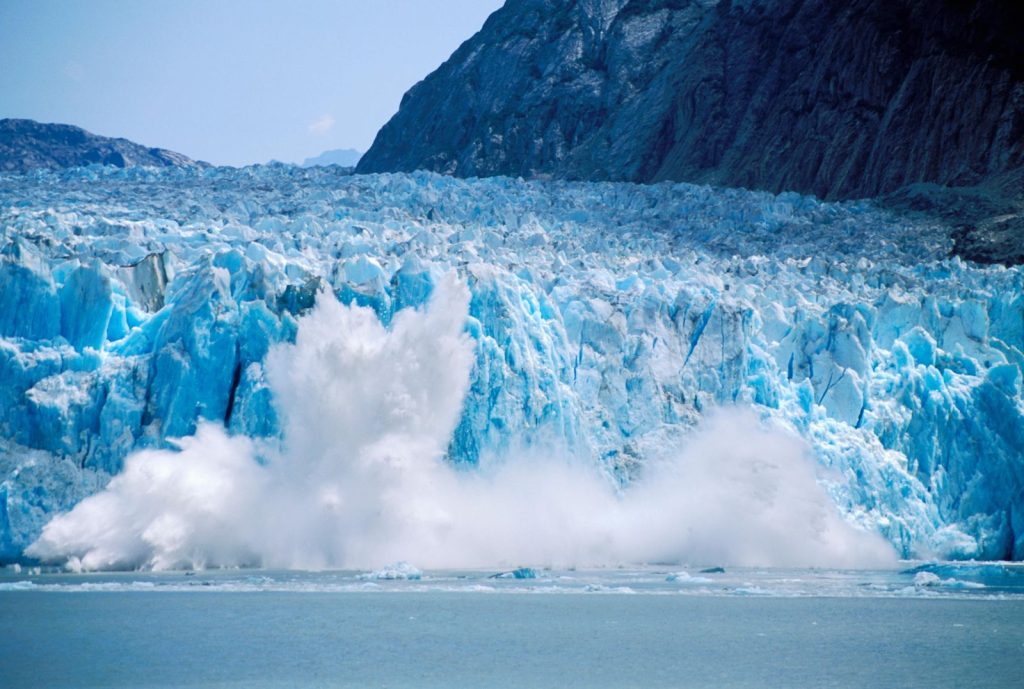
The glacial lake outburst flood are sudden events, which can release millions of cubic metres of water and debris, leading to loss of lives, property and livelihoods among remote and impoverished mountain communities. According to the Minister of Climate Change Senator Sherry Rehman it was predicted that temperatures in Pakistan could rise by 6 to 8 degrees Celsius above average temperatures making glaciers in Pakistan`s northern mountain ranges melting more rapidly as a total of 3,044 glacial lakes developed in the Gilgit Baltistan and Khyber Pakhtunkhwa. The ice from glaciers in the Himalayas had been melting “at least 10 times higher than the average rate over past centuries” a result of increase in regional temperatures and human-induced climate change. From now, amid the prevailing weather conditions “there is an increased possibility of Glof/flash floods, landslides and gusty winds in vulnerable areas of GB,” the National Disaster Management Authority advisory says.
4. Living Indus Initiatives
Federal Ministery of Climate Change has unveiled in 2022 a plan to revive Indus natural routes “Living Indus Initiatives” to “find ways to revive natural routes of Indus river”. The Minister for Climate Change Senator Sherry Rehman has recalled that the cabinet already approved the country`s largest Indus initiative, which is aimed at protecting the cradle of civilisations under serious threat from environmental degradation and anthropogenic activities. The initiative is laudable and unprecedented in Pakistan history.
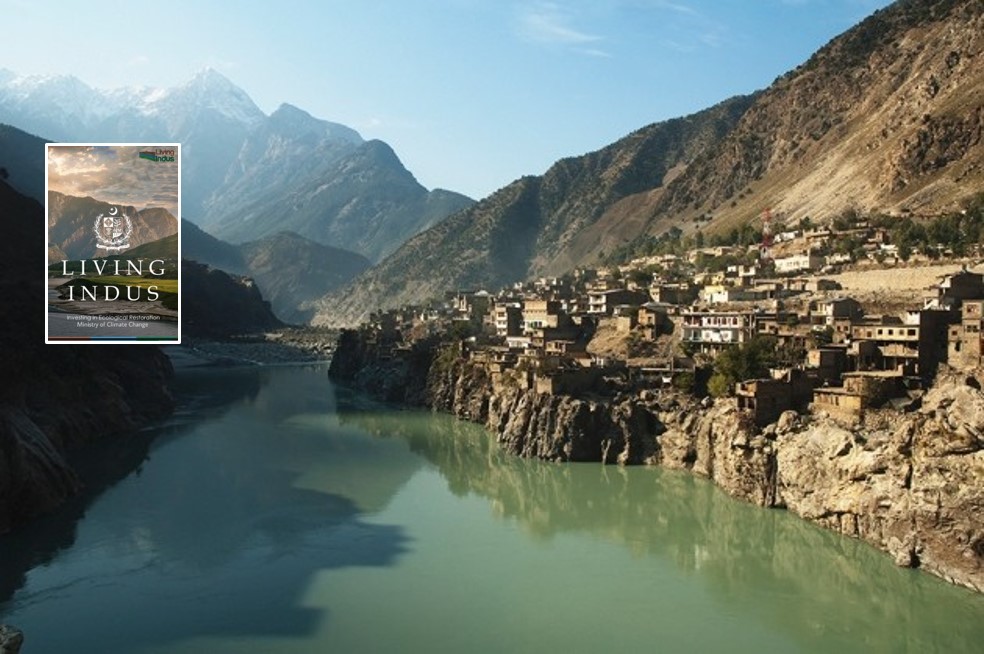
Emphasizing to “ensure development in harmony with nature, not against the nature,” Sherry Rehman briefed the salient features of the project while speaking at a media briefing. She called Indus the “Mother of the nation” and said the mighty river feeds the entire agriculture and humanity living along it from the north to the south. The ministry is preparing a report on Indus to devise a well-thought-out strategy to initiate its “conservation and restoration as a living river”. The minister said that 25 initial interventions and priority areas would be focused, which include developing nature-based resilience agriculture, salinity control, delta protection, Indus cleanup from industrial ef fluent, green infrastructure and ground recharge and groundwater governance.
5. Baluchistan, Pine Nuts Forests Fire
Although, this year in Pakistan multiple incidents of forest wildfire occurred involving events in Islamabad and Abbottabad, however, the blaze in Baluchistan’ Shirani forests of pine and olive trees in May exposed badly Pakistan’ incapability to counter this calamity. The unabated fire that turned chilgoza pine trees — the green gold –of Shirani district of Baluchistan into ashes and smoke, has snatched the livelihood of the local community, which earned nearly Rs3.5 billion annually through the sale of chilgoza nuts. A host of government authorities involved in firefighting rescue works in the Shirani forests, but in vain. However, the Iranian firefighting aircraft Ilyushin 76, the “biggest firefighter aircraft” in the world played an important role in controlling the fire.
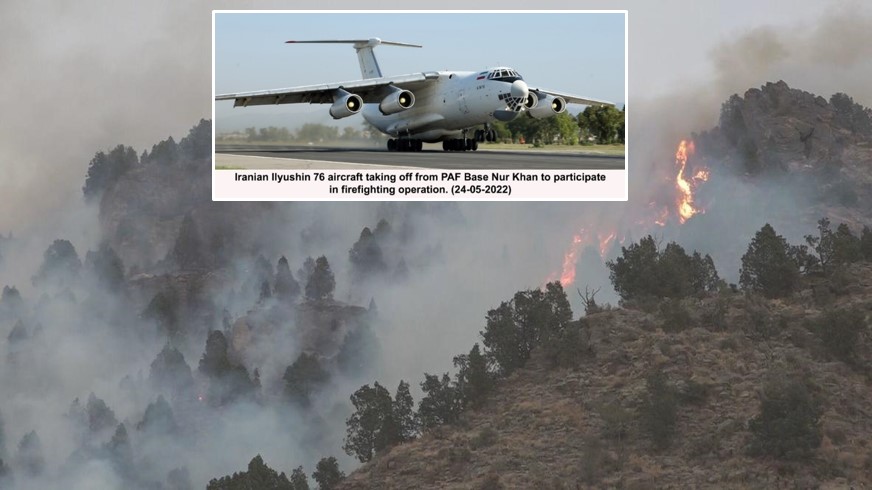
Pine trees dates back more than 1,000-1,500 years old in the Shirani forest, located in the Koh e Sulaiman range. These forests are part of the world’s largest pine forest. The entire forest spans over more than 26,000 acre, producing 650 to 675 metric tons pine nuts of worth Rs. 2.5 billion. A pine tree is a precious tree which starts giving fruit after 25 years. And, pine nuts are one of the most expensive dry fruits in Pakistan and all over world. But large patches of forest, involving hundreds of pine trees have been damaged in this wildfire. The Food and Agriculture Organisation of the United Nations, which has been implementing a Global Environment Facility project for the past four years on the conservation of chilgoza forests and the introduction of nut processing to enhance the value of the nuts for the communities, says this year the fire has snatched the main source of income of 90% people living in the area. According to government estimates, 31 km of forests have been damaged and burnt.
6. Judgement against Margalla Hills Encroachments
The Islamabad High Court held in 2022 that the Capital Development Authority`s decision allowing construction of buildings and food outlets at the Margalla Hills in violation of the Margalla Hills National Park Management Plan as well as Wild Life Ordinance 1979. “Regrettably, most illegal encroachments on the Margalla Hills have been made by the state institutions/entities like the Pakistan Navy, Pakistan Air Force, etc., and the CDA was either complacent or seemed to be helpless,” observes Chief Justice Athar Minallah in his judgment.
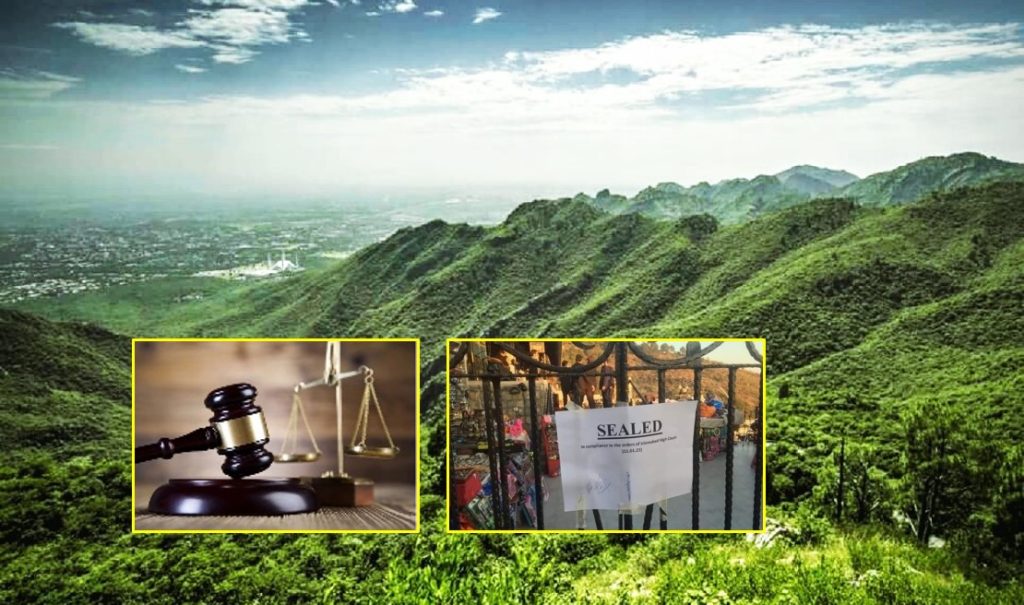
Earlier in Jan 11, 2022, Islamabad High Court in a short order had ordered to seal off the Monal Restaurant, situated at Margalla Hills, and ordered taking control of the Margalla Greens Golf Club built on encroached land also declaring illegal the military`s claim to 8,602 acres of Margalla Hills National Park. However, on March 8, the Supreme Court suspended the Jan 11’High court judgment of sealing and taking over possession of the Monal Restaurant. Now the Islamabad High Court declared that it was the duty of the state and its public functionaries to protect the Margalla Hills, its flora and fauna and to restore the damage caused by removing the illegal encroachments.
7. Climate Justice to “Loss & Damage”
The UN Secretary General Antonio Guterres while visiting Pakistan had admitted that Pakistan’s contribution to climate change was minimal but it was one of the countries most affected by its consequences, by stating “It is like nature has attacked the wrong targets. It should be those that are more responsible for climate change that should have to face these kind of challenges”. He also urged the world to give aid “as a matter of justice rather than sympathy”. Therefore in the 2022 UN Climate Change Conference, the COP27, held from Nov 6 to 18 in Egypt`s Sharm El Sheikh city, Pakistan took up the issue of Climate Financing. As securing climate resilience funds for building capacity and national action plans and strategies is essential for Pakistan after the Pakistan Flood 2022 catastrophe.
While talking about bringing the climate financing agenda at the forefront of the UN meeting Sherry Rehman also said “The COP27 must capitalise the adaptation fund and introduce agility and speed in countries that need to build resilience”. The Minister of Climate Change Sherry Rehman said in the meeting that “loss and damages are the consequences of climate change. Therefore we need climate funds that are easy to access, as well as predictable transfers.” Her efforts bore fruits as on November 20, finally delegates from nearly 200 counties at the COP27 climate summit agreed to set up a “loss and damage” fund meant to help vulnerable countries cope with climate disasters, in a landmark deal in the end. The campaign by the Global South towards convincing the world on protecting people from climate change finally gained breakthrough, winning the support at a global summit. Sherry Rehman, who chairs the G77+China group, called this development “the culmination of a 30-year campaign by developing countries”.
Now to meet these needs, a policy frame of the Resilient Recovery, Rehabilitation and Reconstruction Framework (4RF) will be presented to the International Conference on Climate Resilient Pakistan in Geneva on January 9, 2023, identifying housing, agriculture and livelihood as priority needs of flood-hit people of Pakistan from a humanitarian perspective and seeks urgent actions.
8. Ravi amongst World’ Most Polluted River
A study on pharmaceutical pollution of the world`s rivers conducted at the University of York and published by Proceedings of the National Academy of Sciences of the US has placed Ravi in Lahore among the most polluted rivers of the world. The Study, published on February 2022, has detected pharmaceutical particles including paracetamol, nicotine, caffeine and epilepsy and diabetes drugs in the river Ravi, posing a `threat to environment and human health`.

Expressing concern over these findings about Ravi pollution, environmentalist Afia Salam says the river has been turned into a drain with human and industrial wastes. `We have laws about dumping waste water and industrial wastage but no law is being implemented in the country`, she opines. She also points out that the current government is planning to build Ravi Riverfront Urban Development Project on the river basin which would further increase pollution. According to an Asian Development Bank report on River Ravi revitalization plan, the condition of the River Ravi and its nullahs is a `serious threat to the health` of basin residents.
9. Billion Tsunami Program, Continuation & Inquiry
The federal government led by the PML-N in the coalition after taking reigns in 2022, decided to continue the “Ten Billion Tree Tsunami Program” of the PTI government, and has earmarked Rs 9.45 billion under the Public Sector Development Program (PSDP) 2022-23. The government is doing so to upscale the revised “Green Pakistan Program” aimed at achieving the target of planting 500 million trees. The program is being implemented by the provincial forest and wildlife departments through the ministry of climate change on the 50% cost-sharing basis, except Azad and Jammu Kashmir and Gilgit-Baltistan which are 100% funded by the federal government through the PSDP.
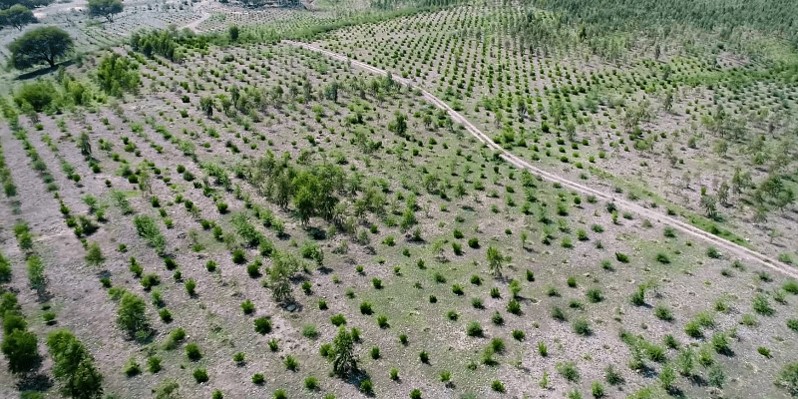
On the other hand, the National Accountability Bureau (NAB) started six inquiries and four investigations into alleged corruption in the Billion Tree Tsunami Afforestation Project aimed at implementing the `Green Growth Initiative` in Khyber Pakhtunkhwa. On July 7, NAB submitted before the PAC that it was investigating the grafts allegations pertaining to plantations, including woodlots, enclosure, farm forestry (free distribution of plants) and procurement of seeds, polythene bags and similar equipment. Following the investigation, the antigraft watchdog files reference in the accountability court after the approval of the chairman. The Billion Tree Tsunami project was a tree plantation drive launched in 2014 by the government of Khyber Pakhtunkhwa in response to the challenge of global warming and to restore 350,000 hectares of forest and degraded land. However, investigations and audit of the Ten Billion Tree Tsunami project, which was partially funded by provinces, is underway at the federal level.
10. Climate Change in CPEC
In the new phase of cooperation both Pakistan and China have decided n 2022 to reinvigorate the China-Pakistan Economic Corridor (CPEC) by including water resources management, climate change and business-to-business investments in energy and industrial sectors. In the 11th meeting of the Joint Cooperation Committee (JCC) on CPEC both countries agreed to start a $10 billion Mainline-1 (ML-1) railway project from Karachi to Peshawar and the Karachi Circular Railway (KCR).

Speaking at a news conference after the 11th meeting of the JCC on CPEC, Minister for Planning and Development Ahsan Iqbal said it was agreed to include a new area of “Water Resource Management and Climate Change” will have great importance, especially after the recent flood which has badly affected Pakistan. The meeting, he said, agreed to push forward the initiative of the new government to include 10,000 MW of solar energy in the system. Major announcements on bilateral cooperation in this regards was to be made during the visit of Prime Minister Shehbaz Sharif to Beijing on Nov 1 this year.
By
Editorial, Infocus

